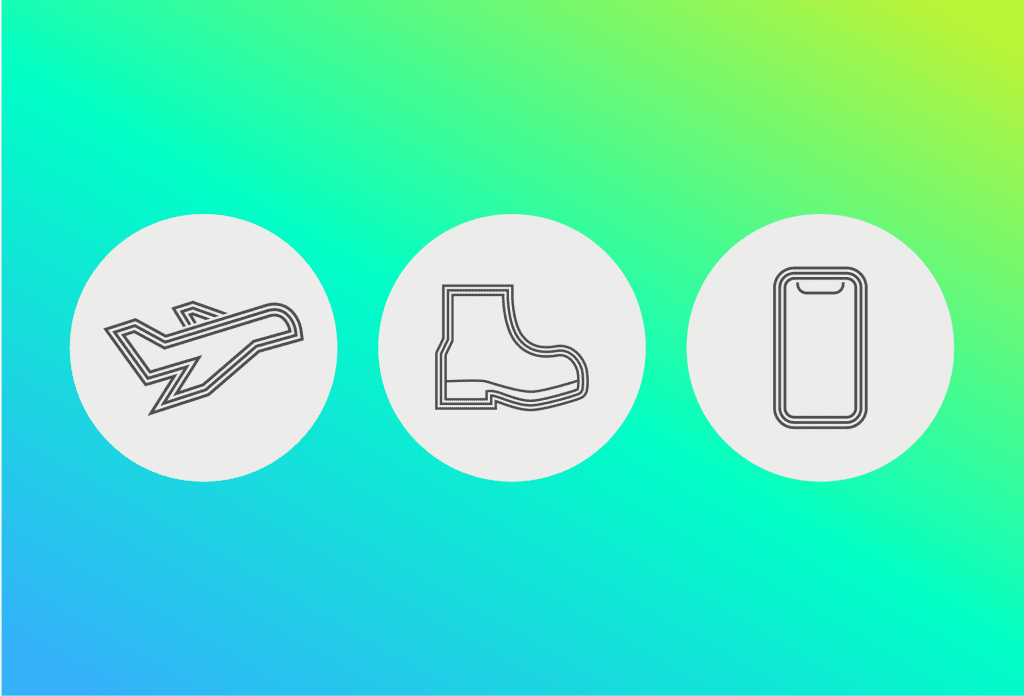Book your spot at our upcoming Not-for-Profits Conference – February 26th
-
About us
BG Private is an AFR Top 100 accounting, audit, and advisory firm.
-
Our history
We have a proud 45-year history. Learn more about our journey here.
-
Our purpose statement
Discover our client service ethos, and the philosophy that drives us.
-
Need a guest speaker?
Our experts can present on a range of topics. Find out more here.
Services for businesses
-
Accounting & Business Advisory
Discover how our accounting and advisory services can help your business grow and reach its goals.
-
Audit & Assurance
Find out how we can assist you with your audit, assurance, and statutory reporting requirements.
-
Tax Advisory
Learn how we can answer your complex tax questions with our specialist insights and advice.
-
Corporate Advisory
Find out how our strategic and operational involvement can help your business maximise its value.
-
Private Equity
Learn how we generate healthy returns for investors by backing ambitious SME founders.
-
Property Advisory
Discover how we can help maximise your property portfolio with insights, strategy, and transaction support.
-
Bookkeeping
See how our bookkeeping services can help your business run smoothly so you can focus on growth and profitability.
-
Management Accounting
Discover how our Management Accounting service empowers business owners to make smarter, data driven decisions.
-
CFO Advisory
Discover how our CFO Advisory service can guide your decision-making and create lasting value for your company.
Services for individuals
-
Accounting Services
Discover all the ways we can help you navigate and optimise your tax matters.
-
Tax Advisory
Learn how we can answer your complex tax questions with our specialist insights and advice.
-
SMSF Management
Discover how we can help with the administration of your Self-Managed Super Fund.
-
Financial Planning
Find out how we can help you reach your financial goals.
Industries
-
Music & entertainment
Find out how we take care of the numbers so you can get back to playing the numbers.
-
Professional services
Explore how we can take care of the books so that you can spend more time on your clients.
-
Manufacturing, wholesale & retail
We can make your life easier while you make things for us all.
-
Property, construction & trades
We can help you build your financial future while you help build Australia.
-
Tech, media & creatives
Learn how we can take care of the “boring but important” so you can focus on making magic.
-
Hospitality
Read up on all the services we have for you, so you can get back to serving your guests.
Business types
-
SMEs
Learn how we partner you along your journey to help you create a thriving business.
-
Not-for-profits
Learn how we can help with your accounting and audit needs so you can focus on helping others.
-
Family businesses
Discover how we can help you every step of the way as you build a legacy-leaving family business.
-
Australian businesses overseas
We can help you navigate the exciting process of expanding overseas.
-
Foreign companies in Australia
We can help you set up and run your operations Down Under.
-
Articles
Read the latest BG updates and interesting articles from our expert advisors.
-
Case studies
See examples of how we have helped clients to learn how we can help you as well.
-
Video & podcasts
Get the latest insights from our experts on a range of topical money matters.
-
Events
Discover our upcoming events including webinars, in-person events, and fundraisers.
-
Newsletters
Catch up on our recent client newsletters which cover important news and updates.
-
Why choose us
Find out how we can help grow your career, and learn about our rewards and benefits.
-
Current opportunities
We are always looking for talented people! Browse our vacancies and apply today!
-
Recruitment process
We like to make the recruitment process as seamless as possible. Learn more here.
-
Experienced professionals
Find out why BG Private is a great place for seasoned professionals.
-
Graduates
Apply what you’ve been learning to real-world cases – launch your career with us!
-
Interns
If you’re studying Accounting, kick-start your career with an internship at BG Private.
What you can claim at tax time in Australia
- 20 May 2025
- by Tim Olynyk | Partner | Tax Advisory
- 5-minute read
Tax time is an opportunity to make the most of the deductions and rebates available to you. Knowing what you can legally claim might significantly reduce your taxable income—and potentially lead to a healthy refund from the Australian Taxation Office (ATO). Whether you’re a salaried employee, freelancer or part-time worker, this guide breaks down everything you might be able to claim at tax time.

Understanding tax deductions
A tax deduction reduces your taxable income, which in turn lowers the amount of tax you need to pay.
To claim a deduction:
- You must have spent the money yourself and weren’t reimbursed by your employer.
- The expense must directly relate to earning your income
- You must have a record to prove it (e.g. receipt, invoice or bank statement)
Common tax deductions for individuals in Australia
1. Work-related expenses
Vehicle and travel expenses
- If you use your own car for work purposes (not commuting), you can claim:
- Cents per kilometre method (up to 5,000 km)
- Logbook method (for actual costs)
- Travel for work (e.g., overnight trips) including meals and accommodation can also be claimed
Note: You can’t claim the cost of commuting to and from home and work.
Work-related clothing and uniforms
- Occupation-specific clothing (e.g., chef’s uniform)
- Protective clothing (e.g., steel-capped boots, high-vis gear)
- Laundry and dry-cleaning expenses for deductible uniforms
Self-education expenses
If the course directly relates to your current job, you can claim:
- Course fees
- Textbooks
- Stationery
- Travel costs between work and your educational institution
Tools and equipment
- Items like laptops, tools or phones used for work purposes
- For items over $300, you can claim depreciation over several years
Home office expenses
If you work from home (that you own or rent), you may claim:
- A fixed rate per hour (currently 70 cents per hour for the 2025 financial year)
- Actual running expenses (e.g., electricity, internet, decline in value of furniture and equipment).
If claiming the fixed rate method, you cannot claim additional tax deductions for the following items:
- Electricity and gas
- Internet and mobile use
- Computer consumables
- Decline in value of furniture
2. Occupation-specific deductions
The ATO provides occupation and industry specific deduction guides to help you identify allowable deductions for your specific situation.
3. Investment property deductions
If you own a rental property, you can claim:
- Interest on loans
- Council rates and water charges
- Property management fees
- Repairs and maintenance (not improvements)
- Depreciation on assets
- Land tax
4. Other deductible expenses
- Personal superannuation contributions made during the financial year (up to the super limit)
- Income protection insurance
- Union fees and professional memberships
- Subscriptions to trade or professional journals
- Donations to registered charities
- Tax agent fees from the previous year
Tips to maximise your tax return
- Keep detailed records: Use apps or spreadsheets to track receipts and expenses year-round
- Use the ATO app or myGov portal to access pre-filled info and track claims
- Consider a registered Tax Agent like our Accounting and Tax professionals at BG Private if your situation is complex
- Review your PAYG withholding (this is where your employer withholds a portion of your income and sends it directly to the ATO on your behalf to ensure you meet your income tax obligations gradually through the year) to avoid owing money at the end of the financial year.
What you can’t claim
- Personal expenses (e.g., grooming, general business attire (that isn’t occupation-specific), commuting, lunch)
- Expenses reimbursed by your employer
- Entertainment or social club memberships
- Fines or penalties
Important dates to remember
- 30 June: Previous financial year ends
- 1 July: New financial year begins
- 31 October: Tax return due (if you lodge it yourself)
- May of following year: Deadline if you use a registered tax agent and are on their client list
The bottom line
Tax time doesn’t have to be stressful. By staying organised and understanding what deductions you’re entitled to, you can ensure you get the best possible return. Keep all receipts, stay informed about ATO updates, and if in doubt, seek advice from a registered tax professional.
Contact us
If you have any further questions relating to what you can claim, contact your usual BG Private advisor, or contact us on +61 3 9810 0700 or
Disclaimer: This article is general in nature and should not be considered financial advice. Please consult with a qualified tax agent or the ATO for advice tailored to your specific situation.
About the author
Tim Olynyk
Other articles you might like
Federal Budget 2025: Key Takeaways
The Australian Government has just released its 2025 Federal Budget, here are the key takeaways.
What your business can claim at tax time in Australia
Tax time is an opportunity for Australian businesses to claim tax deductions that can help reduce your tax bill and...
Victorian State Budget 2025/26: Key Takeaways
The Victorian State Government has just released its 2025 Budget. These are the key takeaways.
